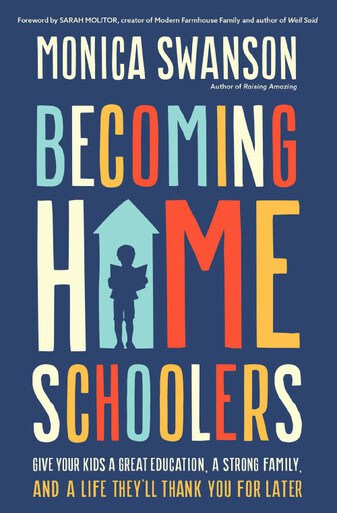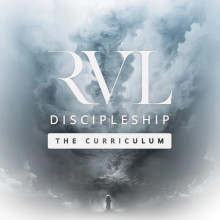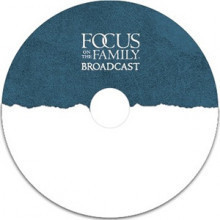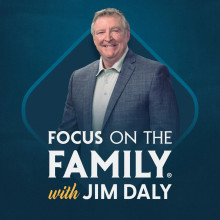Preview:
Monica Swanson: We all know that anxiety and depression has been on the rise for years. And, um, homeschool kids just have a environment that they are able to, one, not deal with a lot of the pressures and the things that are causing anxiety and depression. But when something comes up, they also have a space that they can deal with that.
End of Preview
John Fuller: Mm-hmm. Well, that comment reflects one of the many reasons why a growing number of families are considering and even pursuing homeschooling as an alternative. We’ll be hearing a lot more today on Focus on the Family with Jim Daly. I’m John Fuller.
Jim Daly: John, you and Dena homeschooled, right?
John: We did.
Jim: Yeah.
John: Most of the kids, um, most of the way through.
Jim: Yeah. That’s amazing. Jean and I considered it, but we kind of thought, “You know what? We’re not organized to do it.” (laughing) And I… the kids I sh… I think they would have done well that way, but, uh, we kind of said, “Are we capable of doing it?” We probably could have done it-
John: Ah.
Jim: … to be, uh, fair. But there was something intimidating about it. And that’s why I’m so looking forward to this broadcast. I’m sure there are literally thousands of parents listening that probably are thinking, “Should we do it? Should we not do it?”
John: Mm-hmm.
Jim: We’re gonna clarify some of those issues today and let, you know, what the real, uh, landscape looks like when it comes to public and homeschooling.
John: Yeah. A lot of parents had their eyes open during COVID, and, uh, they had to do some level of education for their kids. Uh, more and more though, uh, parents are saying, “We wanna homeschool.” And we have a great guest joining us today. Monica Swanson is a blogger, author, speaker, podcast host, and-
Jim: And homeschooler. (laughs)
John: … home… homeschooling mom.
Jim: How do you do it all?
John: (laughs) I don’t know. We’ll find out. She, uh, does have four sons, and she’s written a book that is the basis for our conversation today, Becoming Homeschoolers: Give Your Kids a Great Education, a Strong Family, and a Life They’ll Thank You for Later. And, uh, you can learn more about Monica and, uh, the book at focusonthefamily.com/broadcast.
Jim: Monica, welcome back.
Monica: So good-
Jim: Good to have you.
Monica: So good to be here.
Jim: Yeah.
Monica: Thank you.
Jim: You know, uh, yeah, you’ve done it. I think the bio says 17-year veteran of homeschooling.
Monica: (laughs)
Jim: And that’s, that’s-
Monica: Yeah.
Jim: … good ’cause that means you have a couple your… of your sons are now on their way kind of launch-
Monica: Official adults.
Jim: … into college. Yeah.
Monica: Three of them have graduated from homeschooling high school. One more still to come.
Jim: Let me ask you, uh, homeschooling is now the fastest growing form of education-
Monica: Mm-hmm.
Jim: … in the US. Uh, uh, the numbers don’t rival public school attendance.
Monica: Yeah.
Jim: But we’re talking about a few million kids now-
Monica: Right.
Jim: … that are in homeschooling environments.
Monica: Mm-hmm.
Jim: I personally think that’s great. I think-
Monica: Yeah.
Jim: … when I meet homeschooled children, they are attentive, they’re engaged, usually know the topic pretty well.
Monica: Mm-hmm.
Jim: It’s impressive. In fact, I think a lot of colleges now are-
Monica: Yes.
Jim: … targeting homeschool kids-
Monica: Yeah.
Jim: … to get them to apply, uh, to their schools.
Monica: Yes.
Jim: So with that setup, give me a little more, uh, icing on-
Monica: Ah-huh.
Jim: … the cake.
Monica: Oh, absolutely. I, I just love to talk about that because I think that it’s a conversation coming up more and more. And I know that my husband and I both had the typical homeschool stereotypes.
Jim: Yeah.
Monica: Uh, when we were growing up, we both went to public schools. And I just never even considered homeschooling. But today, it’s different. I think the… everyone’s eyes were opened during the COVID pandemic, but also just things going on in our culture, in our world. I think a lot of people are asking the question, “Is this how I want my kids to be raised? Is this an environment I want to put them in every day?” And so I think for good reason, people are starting to question what maybe they grew up with.
Jim: Yeah. I, I think we’ve just published a book with Cynthia Tobias-
Monica: Mm-hmm.
Jim: …, uh, really encouraging parents to take a look at it-
Monica: Yup.
Jim: … because of her concern. Being a former school teacher-
Monica: Yeah.
Jim: … her concerns about what’s happening.
Monica: Sure.
Jim: There are many good Christian teachers, don’t get me wrong.
Monica: Yeah.
Jim: There are, you know, wonderful teachers in the public-
Monica: Mm-hmm.
Jim: … school system, but-
Monica: Yes.
Jim: … it’s risky now because of the ideology that’s being taught-
Monica: Mm-hmm.
Jim: … and how it can be so contrary.
Monica: Yes.
Jim: Uh, so what the home-
Monica: Depending where you live.
Jim: Yeah.
Monica: Yeah.
Jim: You got to be… I guess the point is you got to be on your toes as a parent now-
Monica: Mm-hmm.
Jim: … and be more, uh, inquisitive-
Monica: Right.
Jim: … about what, what is going on at that local school to make that decision.
Monica: Absolutely. And I, I say early on in my book that as much as I’m pro-homeschooling, I’m even more pro-family. So I think every family needs to pray and go into their child’s education with their eyes wide open and make good decisions.
Jim: And that’s part of the answer to this question, but you, you weren’t always in that spot.
Monica: Yeah. (laughs) Yeah.
Jim: I mean, you weren’t an advocate for homeschooling. But-
Monica: Yeah.
Jim: … how, how did you even… You know, what sparked the idea for you and-
Monica: Right.
Jim: … your husband?
Monica: Yes. Well, I blame my oldest son who-
Jim: (laughs)
Monica: We started them all in a private Christian school and had three sons at that time. Two were in school. One was still home. And I started to dream of the day that they would all be in school. And, you know, I had a wonderful mom who’s a stay-at-home mom. She worked hard. She gardened. She made great meals. And I just thought, “Wow. Maybe, someday, I get to have that life.” And, uh, then, my son came home from first grade one day and, over granola bar and apple juice, looked at me and said, “Mom, would you homeschool me next year?” to which I said, “What?” (laughs)
Jim: Yeah. Wow.
Monica: I had never even thought about it, truly.
Jim: Yeah. What was going on for him that he-
Monica: Right.
Jim: … said that?
Monica: I think he had met some kids in Sunday school at church who were homeschooled. And he loved to learn. And I think he looked at it as a way that he could study more the things that he loved, and-
Jim: Ah-huh.
Monica: … and-
Jim: He was ahead of the curb.
Monica: He was ahead of the curb. (laughing) So that, that scared me a little bit. But over time, I say that, you know, I… my fears turned to curiosity. And then I agreed to at least pray about it. And by the next fall, we were homeschooling two kids.
Jim: And was that your oldest?
Monica: That was. Yes.
Jim: I mean that because he led the way-
Monica: Mm-hmm.
Jim: … then, right?
Monica: He did.
Jim: Do the other three brothers, uh, thank-
Monica: Yeah.
Jim: … him now or-
Monica: They, they-
Jim: … they’re going, “What have you done to me?”
Monica: … actually do. No way. They, they all… At this point, all of my sons plan to homeschool their own children one day.
Jim: Wow. Okay. There’s proof in the pudding.
Monica: That says something. Right?
Jim: Yeah. You’ve identified in the book a list of, at least, I think, 20 reasons why-
Monica: Mm-hmm.
Jim: … family should consider homeschooling.
Monica: Yeah.
Jim: And we’re only gonna obviously mention-
Monica: (laughs)
Jim: … a few in 28 minutes or whatever-
Monica: Right.
Jim: … we have here. But, um, what were some of the immediate benefits that you discovered once you started to homeschool?
Monica: Right. I’d say the things at the top of my personal list are things like my kids just developing a, a true faith, a personal relationship with Jesus that I think came out of the time that they had-
Jim: Ha.
Monica: … to spend at home to have God’s Word be woven throughout all their different classes. Um, their relationship with one another, my boys are all best friends. And that’s something I just love. Um, even as adults now, they stay in touch. And I think that just was nurtured and cultivated over all those years that they spent together at home-
Jim: Mm-hmm.
Monica: … and our relationship with our sons as well. So those are the things at the top of my list. But like you mentioned, colleges are seeking out homeschool kids more. Um-
Jim: They just do better on tests.
Monica: … the- they do better on tests.
Jim: Academic function.
Monica: And when they show up at college, they find that they’re self-directed learners. They’re-
Jim: Yeah.
Monica: … innovative. Uh my sons have said… Being at college, my two oldest sons say, “College is a lot like homeschooling.” They’re like-
Jim: Right.
Monica: … “The only difference is we have to walk down to our classes. But otherwise-
Jim: Yeah.
Monica: … we have to manage our own time. We’re responsible.” Uh, you know, some of their friends maybe feel like college has challenged them because when they were growing up, they had somebody telling them every day where to be, what to do, when things we’re doing. My sons were like, “We actually had to do that-
Jim: Yeah.
Monica: … throughout our high school year.” So college is a lot like homeschooling. Um-
Jim: There’s a lot of different… A- again, I’m thinking of the school experience we had with a, a charter school. But they had a track for some of the kids-
Monica: Mm-hmm.
Jim: … which they called, uh, I think it was, uh, College Bound.
Monica: Yes.
Jim: But they did a lot of homeschooling in that context.
Monica: Right.
Jim: You did certain things like chemistry at school-
Monica: Mm-hmm.
Jim: … where you had the ability to do that with, you know, the beakers and everything you need to do chemistry. But most of their other classes that weren’t technical in nature, they could do at home-
Monica: Mm-hmm.
Jim: … mathematics and all that.
Monica: Yes.
Jim: And I… You know, they just really accelerated.
Monica: Right.
Jim: And we had contact with those kids ’cause social functions-
Monica: Mm-hmm.
Jim: … they’d all be together and that.
Monica: Yeah.
Jim: Let me ask you that question because so often, I think it’s an old argument now.
Monica: (laughs)
Jim: But, um, you know, I’m not staying that in touch with it. But people used to say, educators particularly, that, you know, kids that are homeschool, they don’t get social function. They don’t get kind of the, the social graces and things.
Monica: Right.
Jim: Uh, did you find that to be true or-
Monica: Mm-hmm.
Jim: … how did you compensate for that?
John: Mm-hmm.
Monica: I’m so glad you brought up that word. (laughs)
Jim: I know. I- it’s what you hear.
Monica: As homeschool moms, yes. The socialization question, I, I always say, you know, depending on the day. You’re either gonna get a snarky response or we’re gonna understand because most of us at one point had the same concern. But I do say that socialization is probably one of the top reasons (laughs) I’ve chosen to homeschool-
Jim: Yeah.
Monica: … because I don’t (laughs) necessarily want my kids socialized in a setting where they’re surrounded by a bunch of peers who come from who knows what kind of families.
Jim: Yep.
Monica: And, um, you know, they say too that you’re not just socializing your kids with their own peers, but it’s the oldest sibling in each family that those peers represent.
Jim: Kind of sets the tone.
Monica: Absolutely. So socialization is important. But I have yet to meet a homeschool family that isn’t doing something to socialize their kids between sports, co-ops, youth groups. There’s plenty of ways to socialize your kids without sending (laughs) them to a traditional school.
Jim: Yeah. And again, these are, you know, these are arguments, but it’s good to think through-
Monica: Yes.
Jim: … how to, uh, how to come out on the other side with a good answer. The other one-
Monica: Yes.
Jim: … to that is in my, you know, my experience again talking with people that had to kinda think through what they wanted to do-
Monica: Mm-hmm.
Jim: … but it was this idea that somehow, as Christians, if we inoculate our children from experience in the world –
Monica: Mm-hmm. Right.
Jim: … that they don’t become equipped-
Monica: Right.
Jim: … to deal with those hard situations whereas-
Monica: Yes.
Jim: … if the, the kids are in-
Monica: Mm-hmm.
Jim: … a high school-
Monica: Sure.
Jim: … and they’ve got to stand for their faith, it makes them stronger.
Monica: Right.
Jim: Now I… You know, I’ve heard really good argument saying, “Yeah, but I’m not gonna put my child in that incubation thing that-
Monica: Right.
Jim: … he… you know, could be very damaging spiritually-
Monica: Mm-hmm.
Jim: … to him or her.”
Monica: For sure.
Jim: And I, I would tend to lean that way-
Monica: Yes.
Jim: … versus, yeah, but it… You know, it’s good doing inoculate the kids. So speak to that-
Monica: Right.
Jim: … as a homeschooler.
Monica: Absolutely. Well, I’m sure there’s some families out there that raise their kids, never leave the house, never expose them to anything. I mean, that’s possible. But again, I’ve yet to meet those families. And so I’m just a big believer in, in parents knowing best what kids are ready for and when, having the conversations. I always talk about the, the greenhouse analogy where we want our kids to be exposed a little bit at a time to what’s going on in our culture and then being able to have those conversations at home where we can discuss the things that they see. Maybe, it’s out in public, in their youth group at sports, just at the grocery store. You can come home and talk about these things. And then as kids are ready, you give them a little bit more freedom and more freedom because they’re not ready when they’re young.
Jim: And I think, I think too parents-
Monica: That’s too soon.
Jim: … that went to school, you know, 20 years before or 15 years before-
Monica: Yes.
Jim: … it’s not the same.
Monica: It is not the same.
Jim: School has, has really changed in terms of-
Monica: Yes.
Jim: … what teachers are teaching.
Monica: Yes. And our culture has changed.
Jim: Right, and how they’re going about it. So again-
Monica: 100%.
Jim: … I think there should be a caution in your, in your gut saying-
Monica: Yes.
Jim: … “Okay. Do I want to expose my child to those things?”
Monica: Absolutely.
Jim: Let me turn the corner on that. I think we hit that well. But if you have questions, get a hold of us. John will give that information in a minute because again this is probably one of the most serious things-
Monica: Mm-hmm.
Jim: … as a parent that you’ve got to think about.
John: Mm-hmm.
Monica: Yes.
Jim: Um, homeschooling is not a breeze.
John: (laughs)
Jim: I mean, we talk about, “Yeah. This is great. Your kids will turn out well.”
Monica: Yes.
Jim: Colleges will pursue them. They’ll be well equipped-
Monica: Mm-hmm.
Jim: … well-rounded, informed, intelligent.
Monica: Right.
Jim: I mean, I’m going through your list of 20.
Monica: (laughs)
Jim: But, but in the end, it’s work.
Monica: It is.
Jim: You’ve got to think about it. You’ve got to plan.
Monica: You do.
Jim: You got to do those things.
Monica: Mm-hmm.
Jim: So describe for us the-
Monica: Mm-hmm.
Jim: … not, not a breeze category of what it looks like.
Monica: Sure. Yes. Parents have a responsibility. Once you sign up to homeschool, you now have to actually (laughs) do the work.
Jim: Yeah. Lifestyle.
Monica: It is a lifestyle.
Jim: That may be where I went, “Ah-huh. Okay.” (laughing)
Monica: Right. But what I say is I think a lot more parents would try homeschooling if they knew how great it was. All the blessings, it is worth any-
Jim: Mm-hmm.
Monica: … sacrifice that you make. With that being said, you need to, you know, find a curriculum. You need to hopefully find a community, a co-op something to be involved in. But the days aren’t that bad. I- it’s not an eight-hour day.
Jim: (laughs)
Monica: And you can still have a life. You, you don’t die just because you’re choosing to homeschool. I think that there’s, there’s a lot of, um, just myths out there about what your day looks like.
Jim: Yeah.
Monica: We have so much fun. And I find that I’m a more relaxed, happy mom when I’m home with my kids all day than I was in that one-hour rush to get them out the door to preschool or during the bewitching hour before dinner when they were trying to do homework. And I had papers to sign and a lunch to pack. I’m like. “When there’s no external pressures, somewhere they have to be every day, somebody else they have to show up for.” I feel like our rhythm of our life just became so much more enjoyable.
Jim: Oh, that’s interesting. No. That’s good.
Monica: Yeah.
Jim: You mentioned in the book how it taught you better patience.
Monica: Mm-hmm.
Jim: And what I loved about that is how God works on all ends of this equation-
Monica: Absolutely.
Jim: … those things that are maybe needing development within the parent’s-
Monica: Right.
Jim: … emotions and spiritual-
Monica: Yes.
Jim: … area. Speak to that how it gave you more patience which-
Monica: Yes.
Jim: … is a good thing. It’s one of the fruits of the spirit.
Monica: It is. It is. Well, I, I talk in the book about some of the biggest reasons, the most common reasons people give for not choosing to homeschool. And one of them I often hear is, “Oh, my, my son and I or my daughter and I butt heads, you know, or I don’t have the patience.” And I say, “Those are two reasons that you should really consider homeschooling,” because, you know, I say when you have a weak muscle, you wanna lift weights. You wanna build that muscle. Well, in the same way, if you’re lacking patience, do (laughs) something about it. This is a character quality.
Jim: This is so contrary to modern Christianity. (laughing) I mean, we don’t like doing that.
Monica: Right. So do it for that reason because I’ve seen myself grow so much in character-
Jim: Mm-hmm.
Monica: … and in faith because I chose the home school.
John: Yeah.
Jim: That’s fantastic.
Monica: Yeah.
Jim: Uh, in the 20 reasons, and we’re gonna keep weaving in and out of that-
Monica: Yeah.
Jim: … but you mentioned two, efficiency and flexibility-
Monica: Oh, yeah.
Jim: … that children can experience in that way.
Monica: Mm-hmm.
Jim: I think one, one issue that my oldest had, he’s a STEM student.
Monica: Mm-hmm.
Jim: You know, he’s just finishing pre-med. He wants to be a neurosurgeon-
Monica: Hmm.
Jim: … or researcher. So he’s on it.
Monica: Yeah.
Jim: And he is quite on it.
Monica: Yes.
Jim: Um, and very disciplined.
Monica: Hmm.
Jim: But he just did not like the rigidity of this-
Monica: Mm-hmm.
Jim: … charter school.
Monica: Sure.
Jim: And he fought it, fought it-
Monica: Mm-hmm.
Jim: … fought it. And, um, I would say the lack of flexibility in that regard-
Monica: Yes.
Jim: … irritated him.
Monica: Mm-hmm.
Jim: And he didn’t thrive in that environment-
Monica: Right.
Jim: … academically because of it in part.
Monica: Yes. Some students like a rigid schedule, and you can give them that as homeschoolers. But some prefer more freedom-
Jim: Mm-hmm.
Monica: … more flexibility. As I mentioned, my two oldest sons went away to college, and both of them studied science and math. One majored in data analytics. One was mechanical engineering. And both of them would say they were very well prepared through homeschooling. And I think that that flexibility was a big part of it. They were able to get internships. They were able to study the things on the side. One of them was c… learning to code a computer in ninth grade just because-
Jim: Hmm.
Monica: … he found it fascinating, and he had the time to do that. So I think flexibility is huge. And then, of course, my last two sons are, um, both athletes. One is a professional surfer. One is hoping to be (laughs) a professional golfer. And that too gives them flexibility to work their school schedule around their sports. (laughs) Yeah.
Jim: It’s so good.
John: We’re talking to Monica Swanson today on Focus on the Family with Jim Daly. And, uh, you can hear her passion.
Monica: (laughs)
John: She’s captured a lot of stories, insights and advice in her book, Becoming Homeschoolers: Give Your Kids a Great Education, a Strong Family, and a Life They’ll Thank You for Later. Uh, get a copy of that from us here. We’ve got, uh, details at focusonthefamily.com/broadcast.
Jim: Hey, also, you mentioned the book the number of health benefits-
Monica: Mm-hmm.
Jim: … uh, that your homeschooled child derives-
Monica: Yeah.
Jim: … being in a home environment. Speak to that ’cause-
Monica: Sure.
Jim: … those are things we don’t normally think about.
Monica: Right. Well, we all know that anxiety and depression has been on the rise for years. And, um, homeschooled kids just have a environment that they are able to, one, not deal with a lot of the pressures and the things that are causing anxiety and depression. But when something comes up, they also have a space that they can deal with that.
Jim: Mm-hmm.
Monica: If you need to get extra help, if you need, uh, more sleep which most kids do, and that leads us to the sleep topic itself which is huge. Homeschoolers on average get 90 minutes more sleep per night than a traditional school child.
Jim: Mm-hmm.
Monica: And I loved finding out that scientifically, the, um, melatonin in childhood actually shifts during the teenage years and begins to peak in the early morning hours as a teenager. So right when most kids are having to get up to go to school is when really some of their deepest sleep is happening. My boys loved finding (laughs) this out because they’re like, “See. I need to sleep in more.” But having a homeschool lifestyle allows kids to sleep when they need to sleep. I still try to get my kids up early. We’re about efficiency too. But if they need to sleep a little extra, they can.
Jim: You know, that… I was gonna highlight that because-
Monica: Mm-hmm.
Jim: … we’ve had Christian psychologists on the program saying-
Monica: Yeah.
Jim: … “Public school is just not structured for-
Monica: Right.
Jim: … for teenagers,”
Monica: Right.
Jim: … because they do need about 10 to 11-
Monica: Mm-hmm.
Jim: … hours. That was Archibald Hart-
John: Yes.
Jim: … I think used to-
John: Yes.
Jim: … talk about that.
Monica: Yeah.
Jim: They need 10 to 11 hours of sleep.
Monica: Right.
Jim: And, of course, we parents were going, “That’s ridiculous.” No.
Monica: No.
Jim: It’s physiologically-
Monica: Absolutely.
Jim: … true. So-
Monica: And often, they can’t fall asleep at night until-
Jim: Right.
Monica: … a little bit later. And that’s not-
Jim: Right.
Monica: … necessarily a bad thing. It’s just how they’re wired.
Jim: So again, it’s just really applying it. I mean, they can get started at nine, 10:00 o’clock-
Monica: Mm-hmm.
Jim: … and be done-
Monica: Yup.
Jim: … again by two and three-
Monica: That’s right.
Jim: … and get on to the rest of their day.
Monica: Yes.
Jim: So a- another good benefit.
Monica: Yeah. (laughs)
Jim: You know, we kind of breeze by this early on in our discussion today, but this idea of indoctrination that occurs-
Monica: Mm-hmm.
Jim: … in schools-
Monica: Mm-hmm.
Jim: … and the need for parents today to be much more on their toes about it.
Monica: Mm-hmm.
Jim: I want… I wanna get into that a little bit.
Monica: Mm-hmm.
Jim: And, uh, the fact that your child’s faith development is so much more secure, not guaranteed-
Monica: No.
Jim: … you know, but more secure-
Monica: Mm-hmm.
Jim: … in predictable outcomes-
Monica: Right.
Jim: … that your child will love the Lord and follow the Lord-
Monica: Mm-hmm.
Jim: … if you’re able to continue to shape that-
Monica: Yeah.
Jim: … world view-
Monica: Sure.
Jim: … which, you know, again you talk to this… the teachers’ unions and others that are really on to the indoctrination issues.
Monica: Mm-hmm.
Jim: That’s why they don’t want you-
Monica: Right.
Jim: … to homeschool ’cause they want those kids to be able to learn-
Monica: Yes.
Jim: … all of the gender stuff and everything else-
Monica: Mm-hmm.
Jim: … that’s occurring speak to you and Dave, your husband’s, uh, uh, alertness to this.
Monica: Sure.
Jim: And one of the reasons you didn’t wanna put your kids in that kind of-
Monica: Right.
Jim: … situation.
Monica: Well, I think this is one of those topics that is becoming more and more apparent even in the past couple years. And again, you already said it. But I say to the people out there who say, “Well, I did fine in public school. I just wanna remind parents that the world is different (laughs) literally year by year.” So I think we develop more of a, um, awareness of this as our kids grew up.
Jim: Yeah.
Monica: But giving kids a Biblical worldview is huge. Um, if they make it through high school with their faith intact, now, they’re gonna leave the home. And whether they’re in a college university setting or workforce, they’re gonna hear a lot of voices and a lot of messaging. And so we want to make sure our kids understand what they believe and why they believe before they leave the home. And, uh, I think it’s gonna be really hard to do that in those hours when kids go to school, and then they have sports and clubs, and all the things. And if you’re trying to give them a Biblical worldview, it’s gonna be really difficult to do. And then there are way at school where we know kids are more likely to become like the company they keep. So even if they have that (laughs) faith growing up, if they are surrounded all day by teachers with their philosophies, whatever that might be, sometimes good, not always, with their peers and all the messaging that is now becoming more and more normal in the schools-
Jim: Mm-hmm. Mm-hmm.
Monica: … it’s a dangerous place to be.
Jim: Well i- in, in part, you’re gonna attempt then to unwind that damage-
Monica: Mm-hmm.
John: Mm-hmm.
Jim: … spiritually.
Monica: Mm-hmm.
Jim: You’re gonna spend-
Monica: Yes.
Jim: … a lot of time as a parent, sometimes successfully, sometimes not successfully-
Monica: Right.
Jim: … ’cause they’re gonna think, “Oh, you’re such a ogre, and-
Monica: Sure.
Jim: you don’t understand Mom and Dad. And the world’s different from the world you grew up in.”
Monica: Yeah. Yeah.
Jim: I need to be accepting. You know, that’s all… I’m just running the-
Monica: Yes.
Jim: … arguments through my head.
Monica: Yes. Well… And that’s why I say that if you are going to send your child to a traditional school, I would really encourage Christian parents to really have a missionary mentality. I mean, take it that serious. It is no small thing.
Jim: Yeah.
Monica: So you really wanna have those conversations, and you really want to prepare them well because you don’t know what they’re facing every day when they leave the home.
Jim: Yes.
John: Yeah. Monica, one of the things that we enjoyed was a portion of her curriculum was great books. And so my kids grew up reading-
Monica: Mm-hmm.
John: … some of the great books.
Monica: Yes.
John: There are so many other things out there.
Monica: Yes.
John: How does a parent who’s thinking, “Okay. H… She’s convinced me to at least-
Monica: (laughs)
John: … start looking.” How do… How does that parent start finding a curriculum or part of a curriculum-
Monica: Mm-hmm.
John: … uh, as they progress forward?
Monica: Oh, goodness. There are so many excellent-
Jim: (laughs) Big question.
Monica: … curriculums out there which, which is great news. You almost can’t go wrong if you’re choosing a, a Christian curriculum. In my book, I do have an extensive resource list because-
John: Hmm.
Monica: … I know that parents have a lot of practical questions. And so I out… I share our favorite curriculums that we’ve used, and then, um, a lot of other ways that you can choose. There’s things online. And, you know, you can go by your child’s learning style, what you prefer as a parent. There’s so many options. But you can’t go wrong. And the good news is most of us start with something and-
John: If you switch.
Monica: … over time, try a few different things-
John: Yeah.
Monica: … before you settle on what you like best.
John: Yeah.
Jim: No. That’s so good. One of the things we noticed here at Focus on the Family is, uh, not the lack. There are some things out there. I don’t wanna present it that way. But we felt like the faith development-
Monica: Mm-hmm.
Jim: … segment from homeschoolers could use a little more boosting-
Monica: Sure.
Jim: … and some attention.
Monica: Mm-hmm.
Jim: And so one of the things that we have done, we’ve did this series with Ray Vander Laan-
Monica: Mm-hmm.
Jim: … over 28 years now.
John: Mm-hmm.
Jim: I mean, there’s so much content in there. But he’s a high school teacher.
Monica: Hmm.
Jim: And so thankfully, we were able to get in with another group and, and, and basically film his semester-
Monica: Yeah.
Jim: … and then cut that down into segments-
Monica: Right.
Jim: … so that, uh, high school students could be a part of his class-
Monica: Yeah.
Jim: … at least digitally. And that’s available now. It’s a curriculum that we’ve done with Ray Vander Laan. We re… affectionately call him RVL.
John: RVL.
Monica: RVL.
Jim: And RVL i… he just brings a kind of the right appropriate understanding of scripture. He comes from-
Monica: Yes.
Jim: … an Eastern mindset.
Monica: Mm-hmm.
Jim: He studied, uh, at Yeshiva University. So he has the Jewish understanding of the scriptures. And it comes alive, and-
Monica: Oh, my goodness.
Jim: … young people love it ’cause it’s so-
Monica: Yes.
Jim: … much meatier, if I could say it that way-
John: Yeah. It’s got-
Jim: … than, yeah, than what you normally get at Sunday school. So that’s something that parents you can get a hold of. John will make mention of that. But it’s a great augmentation to math and reading.
Monica: Mm-hmm.
Jim: But how to develop these kids spiritually.
Monica: Right.
Jim: You’ve looked at it. What did you think?
Monica: I have looked at it. I’m planning on having my ninth grader use that next year for his-
Jim: Ah.
Monica: … Bible curriculum.
Jim: Yeah.
Monica: I think it is compelling, excellent. I, I think it’s such good content. I highly recommend.
Jim: Yeah, that’s great. I appreciate-
Monica: Yeah.
Jim: … that recognition.
Monica: Yes.
Jim: I mean, Ray does a great job.
Monica: Oh, I, I so enjoyed watching. Yeah. He’s great.
Jim: Um, one of the things that, uh, successful homeschooling parents need is a good support system-
Monica: Mm-hmm.
John: Mm-hmm.
Monica: Mm-hmm.
Jim: … ’cause there’s a lot going on. You’re juggling a lot.
Monica: (laughs) Yes.
John: Yeah.
Jim: What does that look like for you?
Monica: Yes. I think i… It’s like everything. Depending on where you live, you’re gonna find different resources. In Hawaii when my, my boys were young, we were part of a homeschool co-op, and that really encouraged me in the early years. And, um, there’s so many different ways to approach homeschooling from charter programs, to co-ops, to hybrid. So wherever you live, there’s gonna be something. Your church probably has other homeschoolers. So I just encourage people to, to really link arms and find like-minded families and encourage one another ’cause we do need that.
John: Mm-hmm.
Jim: You know, Monica, I’m mindful right at the end here. Um, like you, Jean was able to be home like Dena.
Monica: Mm-hmm. Mm-hmm.
Jim: Uh, all three of us had that good experience-
Monica: Yes.
Jim: … where Mom could be at home.
Monica: Mm-hmm.
Jim: I’m mindful that, that there are many moms that are single parent moms.
Monica: Sure.
Jim: And they’ve got to work-
Monica: Mm-hmm.
Jim: … and doing homeschooling would be a burden.
Monica: Yeah.
Jim: And I just wanna recognize this is not a guilt trip in that regard.
Monica: No.
Jim: You’ve got to manage your environment.
Monica: Mm-hmm.
Jim: You’ve got to know what to do.
Monica: Right.
Jim: But I think the bottom line for all of us no matter what our marital structure is or-
Monica: Mm-hmm.
Jim: … situation, um, if we’re blessed to have an intact bio Mom and Dad family, that’s great. But if something has happened to where that is not in place-
Monica: Mm-hmm.
Jim: … what would you suggest for that single parent mom? Uh, are there things that she can do?
Monica: Sure.
Jim: She’s probably got to be better organized. but she-
Monica: Yeah.
Jim: … could probably do some homeschooling-
Monica: Yeah.
Jim: … with good help.
Monica: Right. That’s an important question. And, uh, in the resources of the book, I’ve got quite a few links to places where working moms, single parents can find out more about those who are doing it. And there’s usually a way. Uh, it’s gonna take a little sacrifice, a little work. But, um, there’s usually a way and, and not always. God knows. He knows what’s going on in your life. None of it’s-
Jim: Yeah.
Monica: Excuse me. None of it’s a surprise to Him. Um, but there are some awesome people out there who are coming alongside single parents and working parents and saying, “Let’s get creative. Let’s get resourceful. Let me help you.” There’s a way you can do it.
John: Yeah.
Jim: Monica, what a great start. I hope what you have heard from Monica today is look into it.
Monica: Mm-hmm.
Jim: And I think your children, uh, are going gonna be in a much better place. It’s not a guarantee, obviously. But, um, one, the familial intimacy, knowing and loving-
Monica: Mm-hmm.
Jim: … each other, learning together, I’m sure you learned a lot.
Monica: Oh, yes. (laughs)
Jim: And, you know, all those science classes-
Monica: Absolutely.
Jim: … that you had to do with your kids.
Monica: Yeah.
Jim: That’s part of the excitement of it.
Monica: Yeah.
Jim: You get to learn together.
John: Mm-hmm.
Jim: And, you know, sometimes, be the informed teacher. But sometimes, be just a little ahead-
Monica: Right.
John: (laughs)
Jim: … ’cause you’ve read the materials.
Monica: Yes. (laughs)
Jim: But, uh, what a wonderful experience. And I would really encourage you to get a copy of Monica Swanson’s book, Becoming Homeschoolers: Give Your Kids a Great Education, a Strong Family, and a Life They’ll Thank You for Later.
Monica: (laughs)
Jim: Doesn’t get better than that.
Monica: Right.
Jim: What a promise.
Monica: (laughs)
Jim: And, uh, you can start by supporting Focus on the Family. If you can make it a monthly gift, we’ll send you a copy of her book as our way of saying thank you, a one-time gift. We’ll do the same. We get it. Budgets are tight, uh, but we want to get this book into your hands. And I would really encourage you. I can’t say it any more powerfully than this.
Monica: Mm-hmm.
Jim: If Jean and I had four, five-year-olds today-
Monica: Mm-hmm.
Jim: … we would homeschool them.
John: Mm-hmm.
Jim: We would bite the bullet-
Monica: Mm-hmm.
Jim: … overcome our fears of anxiety of being, you know, unorganized and incapable, and all the things we use as excuses. And we would do it-
Monica: Hmm.
Jim: … because that’s how critically important it is-
John: Mm-hmm.
Jim: … for your children.
John: Yeah.
Jim: So that’s one of those evidences where we have to sacrifice for the benefit of our kids.
John: Mm-hmm. And in our weakness, God can be strong as we know from scripture. So, uh, take a step. Donate today. Request the book, Becoming Homeschoolers. And, uh, find other resources including RVL Discipleship: The Curriculum. Now, that’s what, uh, Jim was describing with Ray Vander Laan, great storyteller, great Biblical insights. All the details are, uh, at focusonthefamily.com/broadcast, or give us a call, 800 the letter A and the word FAMILY.
Jim: Monica, it’s so good to have you with us. Thanks for making the effort to be here.
John: You bet. Thanks for having me.
Jim: And thank you for joining us as well. And coming up tomorrow, a powerful worldview curriculum from Bible teacher, Ray Vander Laan.
Ray Vander Laan: So I am not called simply to tell people that God is compassionate and loving. I’m called to say, “Show Him an action, the kind of God who when He recognizes sinners instead of sending them all to hell comes and hangs on a cross to say, ‘If you believe in me, I’ll forgive you.'”
John: Thanks for listening to Focus on the Family with Jim Daly. I’m John Fuller inviting you back as we once again help you and your family thrive in Christ.





















